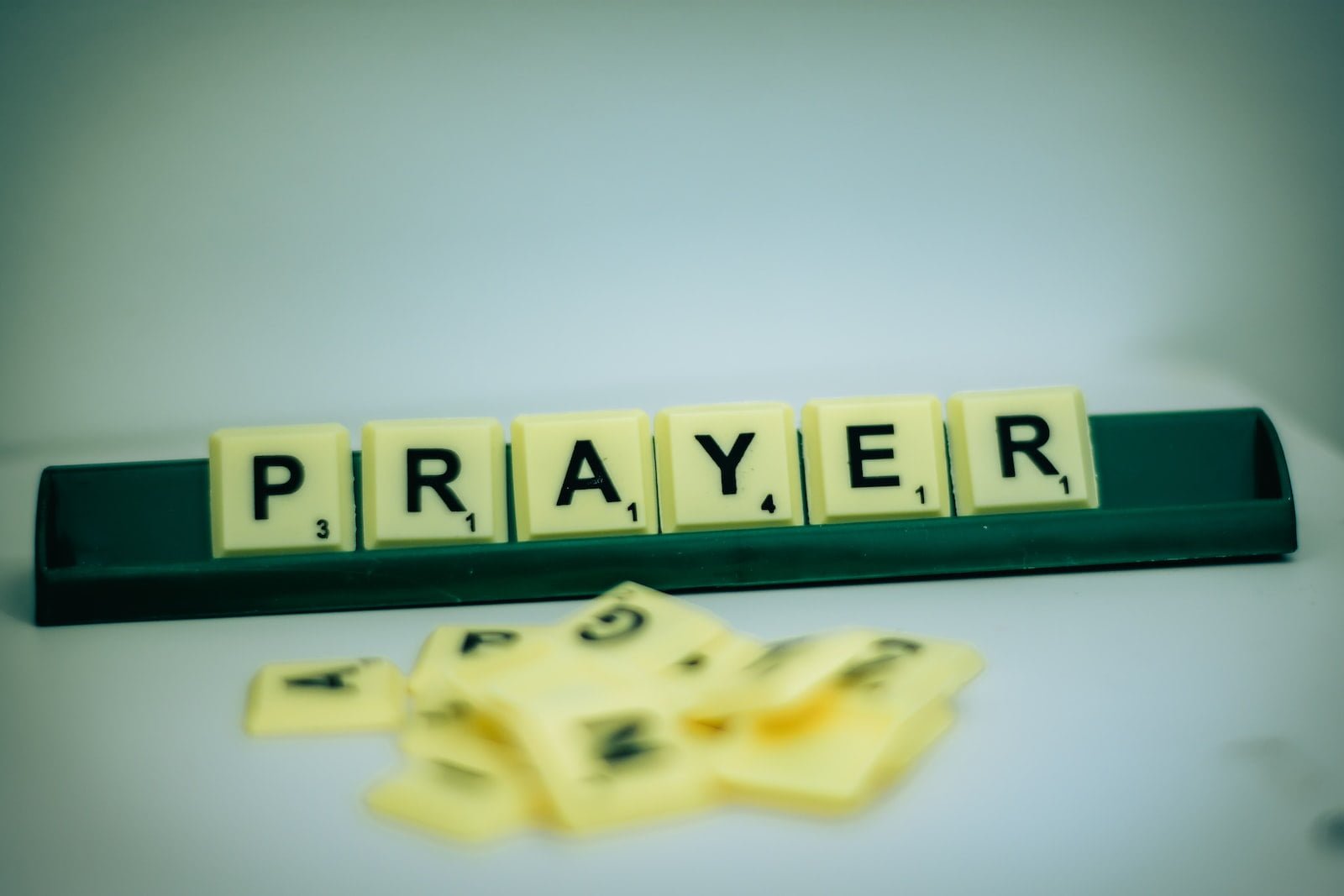
Christianity is a monotheistic religion that follows the teachings of Jesus Christ, the Son of God. Over 2 billion people around the world identify as Christians. But what does it mean to be a Christian? What do Christians believe and practice? In this article, we will answer the top 10 questions about Christianity. We will cover topics such as the Bible, Jesus, salvation, and more. Our goal is to help you learn more about this faith and its relevance today. Just as the Bible says, “The fear of the Lord is the beginning of wisdom, and the knowledge of the Holy One is understanding” (Proverbs 9:10).
What Are the Ten Commandments and How Do They Impact Christianity?
The Ten Commandments are a set of religious and moral principles found in the Hebrew Bible, also known as the Old Testament. They are widely regarded as the foundation of Judeo-Christian ethics and are still observed by many religious groups today.
The Ten Commandments appear in the book of Exodus, chapter 20, verses 1-17. They are as follows:
- You shall have no other gods before me.
- You shall not make for yourself an idol in the form of anything in heaven above or on the earth beneath or in the waters below.
- You shall not misuse the name of the Lord your God.
- Remember the Sabbath day by keeping it holy.
- Honor your father and your mother.
- You shall not murder.
- You shall not commit adultery.
- You shall not steal.
- You shall not give false testimony against your neighbor.
- You shall not covet your neighbor’s house, wife, or anything that belongs to your neighbor.
The Ten Commandments are an important part of Christianity, as they provide a moral code for believers to live by. They honor God and promote a life of righteousness. The Ten Commandments also show love and respect for others, as they emphasize the importance of treating others with kindness and honesty.
The Ten Commandments also bring people closer to God. By following them, believers can demonstrate their faith and commitment to God. This can help them to develop a deeper relationship with God and to live a life that is pleasing to Him.
Jesus affirmed the validity and relevance of the Ten Commandments in his teachings. He said, “Do not think that I have come to abolish the Law or the Prophets; I have not come to abolish them but to fulfill them.” (Matthew 5:17). He also summarized the Ten Commandments into two great commandments: “Love the Lord your God with all your heart and with all your soul and with all your mind.” (Matthew 22:37) and “Love your neighbor as yourself.” (Matthew 22:39).
The Ten Commandments are not only rules to follow but also a reflection of God’s character and love. They reveal God’s holiness, justice, grace, and mercy. They also reveal our need for God’s forgiveness and salvation. As Paul wrote, “Therefore no one will be declared righteous in God’s sight by the works of the law; rather, through the law, we become conscious of our sin.” (Romans 3:20). Only through faith in Jesus Christ can we receive God’s forgiveness and grace, and be empowered to obey his commands.
The Ten Commandments are a vital part of Christianity, as they provide a moral code for believers to live by. They emphasize the importance of honoring God and treating others with kindness and respect. By following the Ten Commandments, believers can demonstrate their faith and commitment to God and develop a deeper relationship with Him.
Some Bible verses that relate to the Ten Commandments are:
- Exodus 20:3-17, where God gives the Ten Commandments to Moses on Mount Sinai.
- Deuteronomy 4:13, where Moses reminds the Israelites of the covenant God made with them through the Ten Commandments.
- John 14:15, where Jesus says, “If you love me, you will keep my commandments.”
- Matthew 5:17-22, where Jesus affirms the validity of the Law and the Prophets and teaches about the true meaning of some of the commandments.
What Are the Core Beliefs of Christianity?
We said earlier that Christianity is a monotheistic religion that follows the teachings of Jesus Christ. It has over 2 billion followers worldwide, making it one of the world’s largest religions. The core beliefs of Christianity revolve around the life, death, and resurrection of Jesus Christ.
- Christians believe that Jesus is the Son of God and the savior of humanity.
He was born of a virgin, lived a sinless life, performed miracles, died on the cross to atone for the sins of humanity, and rose from the dead. This is the doctrine of the Incarnation. “The Word became flesh and made his dwelling among us. We have seen his glory, the glory of the one and only Son, who came from the Father, full of grace and truth.” (John 1:14) - Christians also believe in the Trinity, which is the belief that God is one being in three persons: the Father, the Son, and the Holy Spirit.
This doctrine is based on the teachings of Jesus and the writings of the New Testament. “Therefore go and make disciples of all nations, baptizing them in the name of the Father and of the Son and of the Holy Spirit.” (Matthew 28:19) - Christians also believe in the Bible as the inspired word of God.
They believe that the Bible is the ultimate source of truth and guidance for their lives. “All Scripture is God-breathed and is useful for teaching, rebuking, correcting and training in righteousness.” (2 Timothy 3:16) - Finally, Christians believe in the afterlife.
They believe that when a person dies, their soul will either go to Heaven or Hell, depending on their faith and actions during their lifetime. They also believe in the resurrection of the dead, when Jesus will return to judge the living and the dead. “For God so loved the world that he gave his one and only Son, that whoever believes in him shall not perish but have eternal life.” (John 3:16)
What Is the Role of Jesus in Christianity?
In Christianity, Jesus is the Son of God and the savior of humanity. He is believed to have been born of a virgin, lived a sinless life, and performed miracles. Jesus is also the fulfillment of Old Testament prophecies and the embodiment of God’s love for humanity. (John 3:16)
Jesus’ teachings are the foundation of Christian beliefs and practices. He taught about the Kingdom of God, the importance of love and forgiveness, and the need to live a life of service to others. He also taught about the importance of prayer and faith in God. (Matthew 6:9-13; Mark 12:30-31; John 13:34-35)
The death and resurrection of Jesus are the most important events in Christian history. His death is the ultimate sacrifice for the sins of humanity, and his resurrection is proof of his divinity and the promise of eternal life for believers. (Romans 5:8; 1 Corinthians 15:3-4; John 11:25-26)
In addition to his teachings, Jesus is an example of how to live a life of faith and obedience to God. He is a model of humility, compassion, and self-sacrifice. (Philippians 2:5-11; 1 Peter 2:21-24)
Finally, Jesus is the mediator between God and humanity. He is the only one who can bring people into the right relationship with God. He is the only one who can bring salvation to humanity. (1 Timothy 2:5; Acts 4:12)
What Is the Difference Between Protestantism and Catholicism?
Protestantism and Catholicism are two major branches of Christianity. They share many of the same core beliefs but differ in their approach to authority, tradition, and the sacraments.
The most significant difference between Protestantism and Catholicism is the concept of authority. Protestants believe that the Bible is the ultimate authority, while Catholics believe that both the Bible and the teachings of the Church are authoritative. This means that Catholics look to the Church for guidance on matters of faith and practice, while Protestants rely solely on the Bible.
Another major difference between the two branches of Christianity is the role of tradition. Catholics place a great emphasis on tradition, while Protestants tend to be more open to change. Catholics believe that the Church has the authority to interpret the Bible and to make decisions about matters of faith and practice. Protestants, on the other hand, believe that each individual is responsible for interpreting the Bible and making decisions about their own faith and practice.
Finally, there are differences in the way the two branches view the sacraments. Catholics believe that the seven sacraments are necessary for salvation, while Protestants believe that only two of them, baptism and communion, are necessary. The sacraments are outward signs of an inward grace that strengthen one’s faith and relationship with God.
Overall, Protestantism and Catholicism are two branches of Christianity that have a common origin but have developed differently over time. They both seek to follow Jesus Christ and his teachings, but have different ways of understanding and applying them.
Bible verses that reinforce the relationship:
“For there is one God, and there is one mediator between God and men, the man Christ Jesus” (1 Timothy 2:5).
“All Scripture is breathed out by God and profitable for teaching, for reproof, for correction, and for training in righteousness” (2 Timothy 3:16).
“So then you are no longer strangers and aliens, but you are fellow citizens with the saints and members of the household of God” (Ephesians 2:19).

What Is the Significance of the Bible in Christianity?
The Bible is of immense significance to Christianity. It is the primary source of Christian doctrine and teachings and is considered to be the inspired word of God. It is the foundation of Christian faith and practice and is the basis for Christian beliefs and values.
The Bible is composed of two main sections: the Old Testament and the New Testament. The Old Testament contains the books of the Hebrew Bible, which were written before the time of Jesus. It includes the books of the Torah, the Prophets, and the Writings. The New Testament contains the books of the Christian Bible, which were written after the time of Jesus. It includes the Gospels, the Acts of the Apostles, the Epistles, and the Book of Revelation.
The Bible contains the stories of Jesus’ life, death, and resurrection, as well as the teachings of Jesus and the Apostles. It also contains the Ten Commandments, which are the basis for Christian morality and ethics. “All Scripture is God-breathed and is useful for teaching, rebuking, correcting and training in righteousness” (2 Timothy 3:16).
The Bible is also the source of Christian worship. It contains the Psalms, which are used in Christian worship services, as well as hymns and other songs of praise. It also contains the liturgy, which is used in Christian worship services. “Let everything that has breath praise the Lord” (Psalm 150:6).
The Bible is also the source of Christian prayer. It contains the Lord’s Prayer, as well as other prayers and devotions. “Do not be anxious about anything, but in every situation, by prayer and petition, with thanksgiving, present your requests to God” (Philippians 4:6).
The Bible is also the source of Christian fellowship. It contains the stories of the early Church, as well as the teachings of Jesus and the Apostles. It also contains the stories of the lives of the saints, which are used to inspire and encourage Christians. “Therefore encourage one another and build each other up” (1 Thessalonians 5:11).
In summary, the Bible is of immense significance to Christianity. It reveals God’s character and nature, His sovereignty and power, and His reason for creating us, the universe, and everything in it. It is the primary source of Christian doctrine and teachings and is the foundation of Christian faith and practice. It is the source of Christian worship, prayer, and fellowship. It also shows us God’s will and guides us in living a holy and righteous life.
The Bible has the power to save us, sanctify us, and make us holy. As 2 Timothy 3:16-17 says, “All Scripture is God-breathed and is useful for teaching, rebuking, correcting and training in righteousness, so that the servant of God may be thoroughly equipped for every good work” (NIV). The Bible is God’s living and enduring word that gives us hope, joy, and peace.
What Is the Role of Prayer in Christianity?
Prayer is an integral part of Christianity, and it is a practice that has been around since the beginning of the religion. Prayer is a way for Christians to communicate with God and express their faith and devotion. It is a way to thank God for his blessings, ask for guidance and strength, and to seek forgiveness for sins.
Prayer is also a way for Christians to express their love and gratitude to God. Through prayer, Christians can praise God for his goodness and mercy, and worship him in spirit and truth. Jesus taught his disciples how to pray and gave them the Lord’s Prayer as a model (Matthew 6:9-13). He also encouraged them to pray persistently and faithfully (Luke 18:1-8).
Prayer is an important part of the Christian faith. It is a way to connect with God and align one’s will with his. Through prayer, Christians can receive God’s grace and peace, and experience his presence and power. The apostle Paul urged Christians to pray without ceasing (1 Thessalonians 5:17) and to pray for one another (Ephesians 6:18). Prayer is an essential part of the Christian faith and is a way for Christians to grow in their relationship with God. As James wrote, “The prayer of a righteous person is powerful and effective” (James 5:16).
What Is the Role of the Church in Christianity?
The Church is the body of believers, the community of faith, and the place where the teachings of Jesus Christ are shared and practiced. It is the place where people come together to worship, learn, and grow in their faith.
The Church is the primary source of Christian teaching and doctrine. It studies and interprets the Bible, and applies the teachings of Jesus to everyday life. The Church also prays, fellowships, and serves one another.
The Church is also the place where people can find spiritual guidance and support. It offers comfort and solace in times of difficulty. The Church also provides fellowship and community. It shares joys and sorrows and supports one another in times of need.
The Church is also the place where people can find healing and restoration. It offers forgiveness and reconciliation. The Church also gives hope and encouragement. It celebrates the good news of Jesus Christ and shares in the joy of his salvation.
“For just as each of us has one body with many members, and these members do not all have the same function, so in Christ we, though many, form one body, and each member belongs to all the others.” (Romans 12:4-5)
“And let us consider how we may spur one another on toward love and good deeds, not giving up meeting together, as some are in the habit of doing, but encouraging one another—and all the more as you see the Day approaching.” (Hebrews 10:24-25)
“Instead, speaking the truth in love, we will grow to become in every respect the mature body of him who is the head, that is, Christ. From him the whole body, joined and held together by every supporting ligament, grows and builds itself up in love, as each part does its work.” (Ephesians 4:15-16)
The Church plays a vital role in the lives of believers. It is where they worship, learn, and grow in their faith. It is where they find spiritual guidance and support, healing and restoration. It is where they celebrate the good news of Jesus Christ and share in the joy of his salvation. As Hebrews 10:25 says, ‘Let us not give up meeting together, as some are in the habit of doing, but let us encourage one another—and all the more as you see the Day approaching.’
What Is the Role of Sacraments in Christianity?
Sacraments are outward signs of an inward grace that connect us with God and help us receive his grace. Christians see sacraments as a way to be united with God and to receive his forgiveness, healing, and strength.
The Catholic Church recognizes seven sacraments: Baptism, Confirmation, Eucharist, Reconciliation, Anointing of the Sick, Holy Orders, and Matrimony. Each sacrament has a specific purpose and a way to receive God’s grace.
Baptism cleanses us of sin and welcomes us into the Christian faith. It is a way to be reborn and to receive the grace of God. Jesus said, “Truly, truly, I say to you, unless one is born of water and the Spirit, he cannot enter the kingdom of God” (John 3:5).
Confirmation strengthens our faith and gives us the gifts of the Holy Spirit. It is a way to grow in our relationship with God and to witness His love. The apostle Paul wrote, “For this reason, I remind you to fan into flame the gift of God, which is in you through the laying on of my hands” (2 Timothy 1:6).
The Eucharist is the body and blood of Christ that we receive in communion. It is a way to be nourished by Christ and to be united with him. Jesus said, “Whoever eats my flesh and drinks my blood has eternal life, and I will raise him up on the last day” (John 6:54).
Reconciliation is the sacrament of forgiveness for sins. It is a way to be reconciled with God and with the Church. Jesus said, “If you forgive the sins of any, they are forgiven them; if you withhold forgiveness from any, it is withheld” (John 20:23).
Anointing of the Sick is the sacrament of healing and strength for those who are ill or suffering. It is a way to receive God’s comfort and peace. James wrote, “Is anyone among you sick? Let him call for the elders of the church, and let them pray over him, anointing him with oil in the name of the Lord” (James 5:14).
Holy Orders is the sacrament of service to God in the priesthood. It is a way to receive God’s grace to serve his people and celebrate his mysteries. The author of Hebrews wrote, “And no one takes this honor for himself, but only when called by God, just as Aaron was” (Hebrews 5:4).
Matrimony is the sacrament of love and fidelity in marriage. It is a way to receive God’s grace to live a life of mutual respect and support. Paul wrote, “Husbands, love your wives, as Christ loved the church and gave himself up for her” (Ephesians 5:25).
Sacraments are an important part of Christianity because they are a way to receive God’s grace and to be united with him. They help us grow in our faith and in our love for God and others.
What Is the Role of the Holy Spirit in Christianity?
The Holy Spirit plays a vital role in Christianity. He is the third person of the Trinity, alongside God the Father and Jesus the Son. He is the presence of God in the world and the source of power and guidance for Christians.
He gives spiritual gifts to believers, such as prophecy, healing, and speaking in tongues. These gifts help them in their spiritual journey. He also comforts and strengthens them in times of difficulty. “I will ask the Father, and he will give you another advocate to help you and be with you forever—the Spirit of truth.” (John 14:16-17)
He inspires Christian writers and artists and guides Christian leaders. He also convicts and leads people to repentance, helping them to understand God’s will. “When he comes, he will prove the world to be in the wrong about sin and righteousness and judgment.” (John 16:8)
He unites Christians in love and fellowship and empowers them to share the gospel with others. “There is one body and one Spirit, just as you were called to one hope when you were called; one Lord, one faith, one baptism; one God and Father of all.” (Ephesians 4:4-6)
In summary, the Holy Spirit plays a vital role in Christianity. He is the source of spiritual gifts, comfort, strength, inspiration, guidance, conviction, repentance, unity, and power. Through him, Christians are able to live out their faith and share the gospel with others.

What Is the Role of Evangelism in Christianity?
Evangelism is the practice of spreading the gospel of Jesus Christ to non-believers. It is a fundamental part of the Christian faith, as Jesus commanded his followers to “go and make disciples of all nations” (Matthew 28:19). This command is known as the Great Commission, and it is the basis for evangelism.
Evangelism is important for several reasons. First, it is the primary way in which the message of Jesus is spread. Without evangelism, many people would not hear the good news of salvation through Jesus Christ.
Second, evangelism is a way for Christians to share their faith with others and to help them come to a saving knowledge of Jesus Christ. Evangelism is an act of love and compassion for those who are lost and in need of God’s grace.
Third, evangelism is a way for Christians to show their love for God and obey his command to spread the gospel. Evangelism is an expression of gratitude and worship to God for what he has done for us through Jesus Christ.
Evangelism is an important part of Christianity, as it reflects the heart and mission of God. God loves the world and wants everyone to be saved (John 3:16). He sent his Son, Jesus Christ, to die for our sins and to rise again so that we can have eternal life (John 3:36). He also sent his Holy Spirit to empower us to be his witnesses (Acts 1:8). Therefore, as Christians, we have a responsibility and a privilege to share the gospel with others and to invite them to follow Jesus Christ.
One way to do evangelism is to use Bible verses that explain the gospel clearly and simply. Some examples are:
- Romans 3:23: “For all have sinned and fall short of the glory of God.”
- Romans 6:23: “For the wages of sin is death, but the gift of God is eternal life in Christ Jesus our Lord.”
- Romans 5:8: “But God demonstrates his own love for us in this: While we were still sinners, Christ died for us.”
- Romans 10:9-10: “If you declare with your mouth, ‘Jesus is Lord,’ and believe in your heart that God raised him from the dead, you will be saved. For it is with your heart that you believe and are justified, and it is with your mouth that you profess your faith and are saved.”
- John 14:6: “Jesus answered, ‘I am the way and the truth and the life. No one comes to the Father except through me.'”
- Acts 4:12: “Salvation is found in no one else, for there is no other name under heaven given to mankind by which we must be saved.”
These verses can help us explain the gospel to others and to invite them to respond by repenting of their sins and trusting in Jesus Christ as their Lord and Savior.
Conclusion on the Top 10 Questions About Christianity
In conclusion, the top 10 questions about Christianity provide a great starting point for anyone looking to learn more about the religion. Christianity is a complex and diverse faith, and these questions provide a good overview of the major topics and beliefs. As with any religion, there is much more to learn and explore, and these questions can help to provide a foundation for further study.
Christianity is not a religion, but a relationship with God. You need to be born again spiritually to understand this. If you are still separated from God, let me introduce you to Jesus Christ right now. He is the only way to eternal life and peace with God. He is your Lord and Savior, and He wants you to follow Him. Don’t delay, choose to trust Him today.
If you’re looking for answers to the top 10 questions about Christianity, then look no further! Visit Godliberationcathedral.org to get the answers you need. With a wide range of resources and a counselor waiting to attend to you, you’ll be sure to find the answers you’re looking for. Don’t wait any longer; start your journey to understanding Christianity today!





